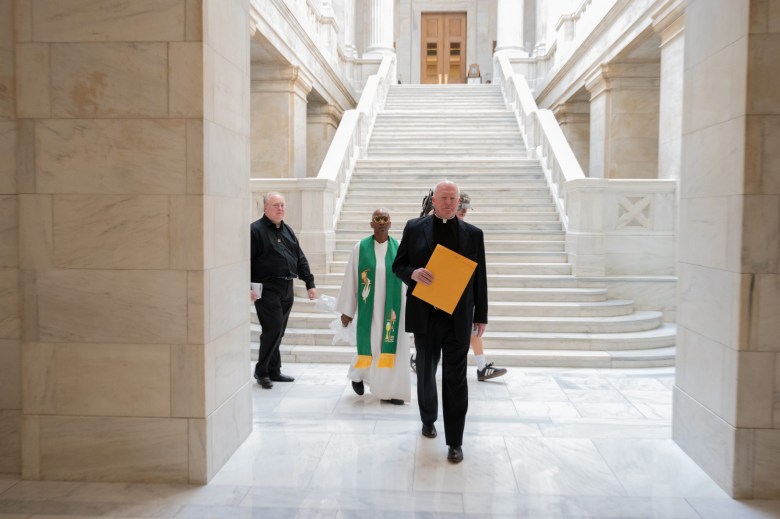Bipartisan backing for legislation has been uncommon in Washington in recent years. This is especially true when discussing prisoners and criminal justice in general. Therefore, it should be cause for celebration when lawmakers from both parties vote to take a positive action for prisoners, which is an uncommon occurrence.
The Federal Communications Commission says no. A Biden-era rule that capped phone call costs for prisoners with effect from April 1, 2025, was repealed by the FCC in June without a proper hearing or request from any of the parties.
A number of public interest organizations and nonprofits are now contesting that ruling, claiming it is a terrible injustice and a setback for families who are trying to maintain contact with their loved ones who are incarcerated.
With bipartisan backing, Congress approved the Martha Wright-Reed Just and Reasonable Communications Act. The measure was signed by President Joe Biden in January 2023, and in July of last year, the FCC overwhelmingly issued a rule enforcing the law and capping the cost of inmate calls. April 1, 2025, was the date the caps went into effect.
However, FCC Chairman Brendan Carran said in June that the 2024 rule change was being halted by the agency’s Wireline Competition Bureau, which creates policies pertaining to traditional wired telephone services, and that a complete waiver of the cost ceiling date was being granted. Carr claims that the new phone cost regulation is having unanticipated and detrimental effects.
Carr claimed that by lowering the rate caps too low to pay for the necessary safety enhancements and before state and local governments could find other funds, this adjustment specifically addresses implementation issues with the 2024 Order.
However, those who support jail reform and other related organizations don’t believe Carr’s justifications, so they are contesting the bureau’s ruling by submitting an application for review to the FCC.
The groups contend in their application that Congress’s instructions to the FCC are in conflict with the rule’s implementation timelines, which were established expressly to enact a statute approved by Congress.
Additionally, the groups argue that the revocation of the 2024 restrictions violates the Federal Administrative Procedures Act since it was carried out without providing notice or a chance for comment, and it did not adhere to the FCC’s guidelines for the timing and manner of waivers.
According to Cheryl Leanza, Policy Advisor for the United Church of Christ Media Justice Ministry, one of the organizations that submitted the application for review, the Bureau’s decision is both damaging and confusing. The majority of the FCC just agreed last week in its open meeting that Bureaus cannot conduct rulemakings, recognizing that it goes much beyond the Bureau’s power.
The unfairness of lifting the phone cost restrictions was another point of contention raised by those opposed to the rule change.
Harold Feld, Senior Vice President of Public Knowledge, a public interest organization that advocates for access to reasonably priced communications technologies, said that this Suspension Order is not only unlawful and against the wishes of Congress, but it is also extremely cruel. The Order suddenly snatches back the promised relief for two years with a warning that worse may come after years of families struggling to stay connected and repeatedly defeating the forces against them to have laws approved and regulations in place.
Even in Arkansas, the resolution of this conflict will have real repercussions. Sheriff John Montgomery of Baxter County ordered the county jail to stop calling detainees in March, with the exception of calls to bail bondsmen and attorneys.
Montgomery pointed the finger to the 2024 rule change, but the Baxter County policy change seemed to be more related to the county’s loss of revenue from inmate calls. Since a county would only require alternative funding if it was previously receiving money from inmate phone calls and could no longer rely on that revenue stream, Carr’s remark about giving state and local governments [time to] secure alternative funding seems to support this.
The application to review the bureau’s decision has not been given a hearing date. It appears likely that this case will wind up in federal court before it is settled, regardless of the FCC’s decision about the application. The current practices will continue to disproportionately affect prisoners and their families in the interim.
It’s dragon-slaying time!
The Arkansas Times, which relentlessly defends the fundamental rights and liberties in our community, stands as a light of truth in an era when critical voices are being silenced more and more. Our commitment to provide uncompromising journalism has never been more important, especially with Arkansas in the center of a broad culture war that is impacting our libraries, schools, and public conversation. We can’t accomplish our goals of defeating dragons and holding those in positions of authority responsible alone. You can guarantee that independent journalism in Arkansas not only endures but flourishes by making a contribution today. We can join the fight and make a difference together.







